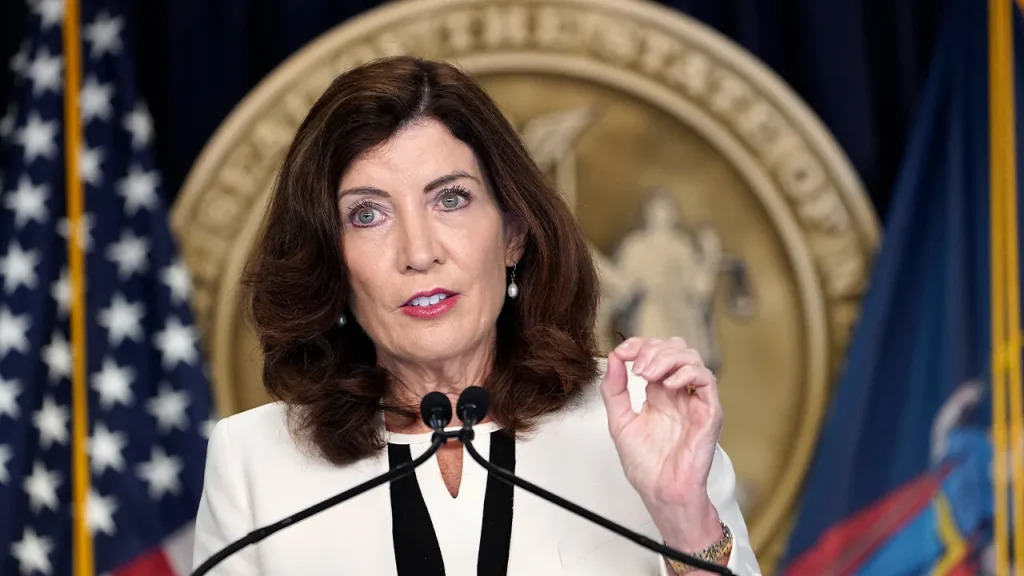New York Governor Kathy Hochul’s proposed legislation to expand involuntary commitment laws has ignited a fierce debate about the intersection of mental health, public safety, and individual liberties. Motivated by a recent spate of violent incidents in the New York City subway system, Hochul argues that amending existing mental health laws is crucial to addressing the perceived threat posed by individuals with untreated mental illness. Her proposal seeks to broaden the criteria under which hospitals can compel individuals into treatment, ostensibly to protect the public from random acts of violence. This initiative, however, has been met with strong opposition from civil liberties advocates who argue that such measures are not only ineffective but also infringe on fundamental rights.
The core of Hochul’s argument lies in the belief that untreated mental illness is a significant contributing factor to violent crime, particularly in public spaces like the subway. Citing several high-profile incidents, including a subway pushing incident and a knife attack, she posits that these acts were perpetrated by individuals struggling with mental health issues. While acknowledging the need to protect public safety, critics contend that linking mental illness to violence perpetuates harmful stereotypes and stigmatizes an already vulnerable population. Research consistently demonstrates that individuals with mental illness are far more likely to be victims of violence than perpetrators.
Hochul’s proposed legislation aims to expand the definition of “risk of serious harm” that currently governs involuntary commitment. While the precise details of the proposed changes remain unclear, the governor has indicated that the legislation would empower hospitals to commit a broader range of individuals deemed to pose a threat to themselves or others. This expansion raises significant concerns about due process and the potential for unwarranted deprivation of liberty. Civil liberties advocates argue that such a broad definition could lead to the involuntary commitment of individuals who pose no real danger, solely based on subjective assessments of their mental state.
Further complicating the issue is the lack of clarity surrounding the assessment and implementation of involuntary commitment. Current law requires a psychiatric evaluation to determine the necessity of hospitalization, but the proposed legislation offers little detail on how this process would be altered. Critics fear that the expanded criteria could overburden an already strained mental health system, leading to inadequate assessments and potentially harmful consequences for individuals wrongly committed. They argue that focusing on expanding access to voluntary treatment and providing comprehensive community-based mental health services would be a more effective and less intrusive approach to addressing the underlying issues.
Adding another layer to the debate is Hochul’s accompanying proposal to streamline assisted outpatient treatment (AOT). While proponents argue that AOT can provide necessary support for individuals who may not otherwise seek treatment, critics express concerns about the coercive nature of such programs and the potential for abuse. They argue that AOT should be a last resort, implemented only after all voluntary treatment options have been exhausted and with robust safeguards in place to protect individual rights.
The debate surrounding Hochul’s proposals highlights the complex interplay between public safety, individual liberties, and the need for effective mental health care. While the governor’s stated goal of protecting the public is understandable, critics argue that expanding involuntary commitment is a misguided and potentially harmful approach. They advocate for a more comprehensive strategy that prioritizes voluntary treatment, community-based services, and addressing the root causes of mental health challenges, rather than resorting to coercive measures that could further stigmatize and marginalize individuals struggling with mental illness. The coming legislative session will be crucial in determining the future of mental health care in New York and whether the state will prioritize individual rights while addressing legitimate public safety concerns.


